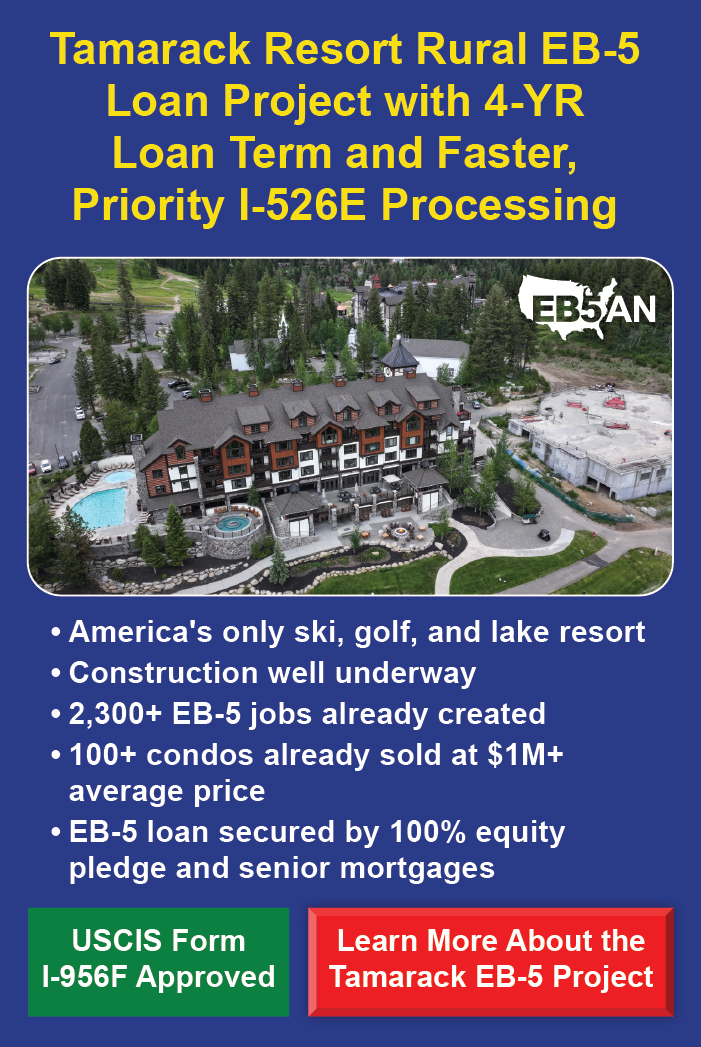The COVID-19 pandemic has roiled the global economy, creating vast fluctuations in the financial markets. Interruptions in supply chains, hiring freezes, permanent and semi-permanent closures, extended medical leave, and general uncertainty have created concern for prospective investors across all industries but especially those in the EB-5 investment world.
The COVID-19 pandemic is not the only factor that has contributed to a decline in new EB-5 offerings. In fact, in some ways, the EB-5 world has actually benefitted from the pandemic, making this one of the best times to invest. But other factors, such as huge visa backlogs for some countries, the near-doubling of the required minimum investment amount, changes to the allocation of targeted employment areas (TEAs), and even the mercurial U.S. political climate, have led many EB-5 operators to adopt a “wait-and-see” approach, slowing their offerings of new EB5 investment opportunities.
For investors seeking new EB5 investment opportunities, it is essential that they and their attorney perform proper due diligence before investing. When evaluating risk in potential EB-5 projects, EB-5 investment participants should expect to see certain disclosures from prospective project partners with regards to the COVID-19 pandemic and any possible effects it may have on the project and the EB-5 investments made in it. Investors should also understand the current economic and political outlook and what it means for EB-5 investment offerings.
Full and Fair Disclosure
According to the laws and regulations of the U.S. Securities and Exchange Commission (SEC), especially the Securities Exchange Act of 1934, all offering documents must contain “full and fair disclosure” of material information. Untrue statements of material fact are strictly prohibited, as is the act of omitting any material fact necessary to prevent previous statements from becoming misleading. In short, if there is substantial likelihood that an omission or misstatement might impact an investor’s decision to buy or sell a security, it is a violation.
In offering documents for an EB5 investment, investors should look for full and fair disclosure in statements of various traditional uncertainties and risks found in the type of EB-5 project being offered. Statements of general caution should also be found in a project’s offering documents. Offering documents should reference the Securities Exchange Act of 1934, as well as the safe harbors availed to new commercial enterprises (NCEs) under the Private Securities Litigation Reform Act of 1995, in forward-facing statements.
Disclosures About COVID-19
Offering documents should include disclosure in forward-facing statements about the additional uncertainties and risks that might pertain to COVID-19. These statements should also outline how traditional risks may be exacerbated by the pandemic and how a project’s expected results may differ materially due to COVID-19. For instance, travel bans and a decline in tourism may significantly lower demand for a hotel project. Similarly, a real estate project may see its construction timeline lengthen due to social-distancing measures and extended medical leave for staff.
Material Changes
Material changes to a project can alter the processing of EB-5 investor petitions by United States Citizenship and Immigration Services (USCIS). Changes to the project’s business plan or sources of funds can create major confusion for EB-5 investors and even jeopardize an investor’s visa eligibility. Offering documents should clarify when such material changes would require an EB-5 investment participant’s consent, as well as a full outline of an investor’s rights.
Disclosures and offering documents should always be reviewed by an experienced immigration attorney or EB-5 professional to better ensure an EB-5 investment participant’s greatest protection, especially in the wake of the COVID-19 pandemic. Project operators should endeavor to disclose as much meaningful information they can, as the SEC’s securities standards are much more stringent than USCIS’s. Additionally, investors must make sure their documents include an exit strategy so that they may remain compliant with the EB-5 program’s requirements in the event of material changes to their project’s documents. Proper disclosure and proper due diligence should help potential EB5 investment participants to find the right project and make the right decision.







